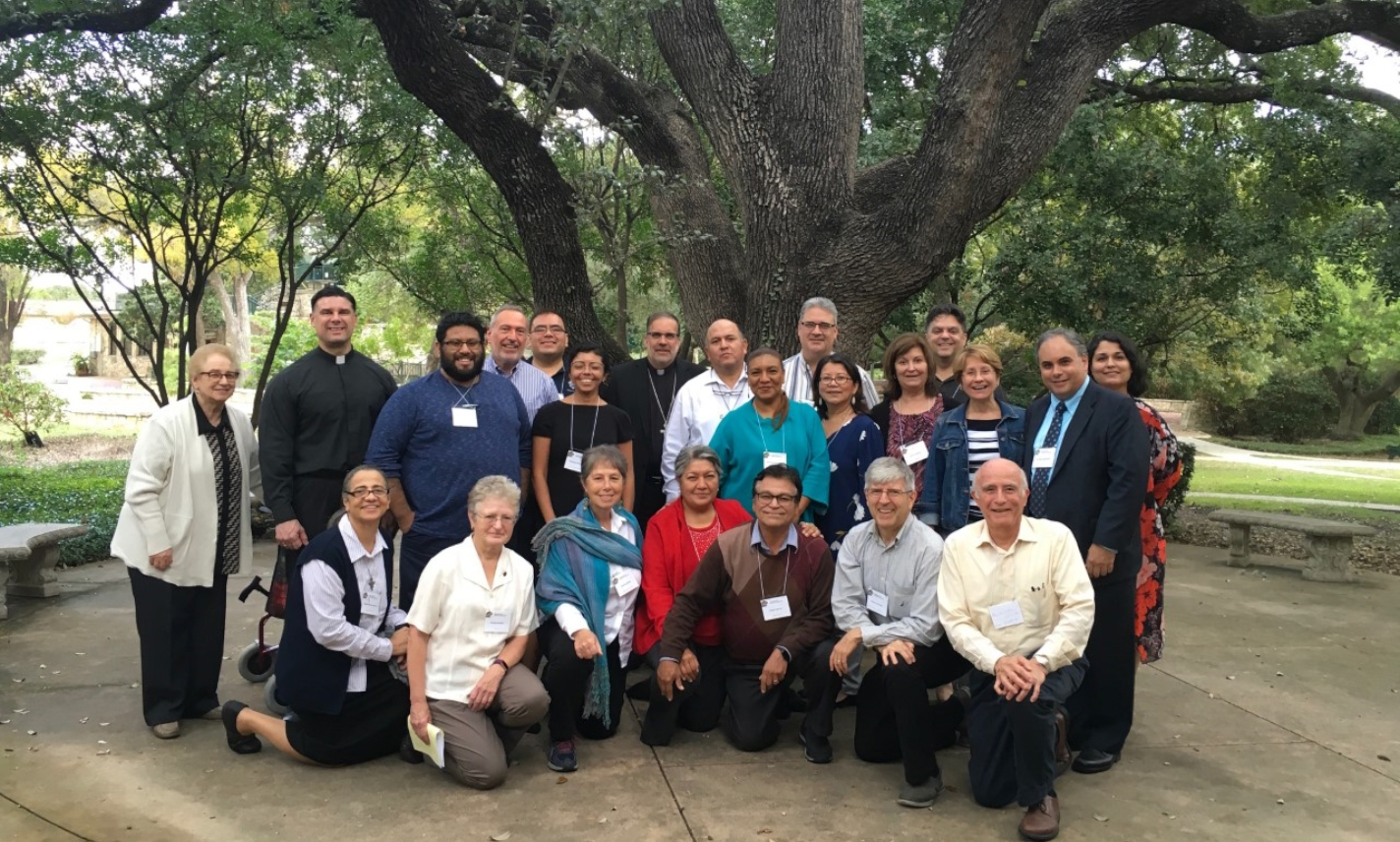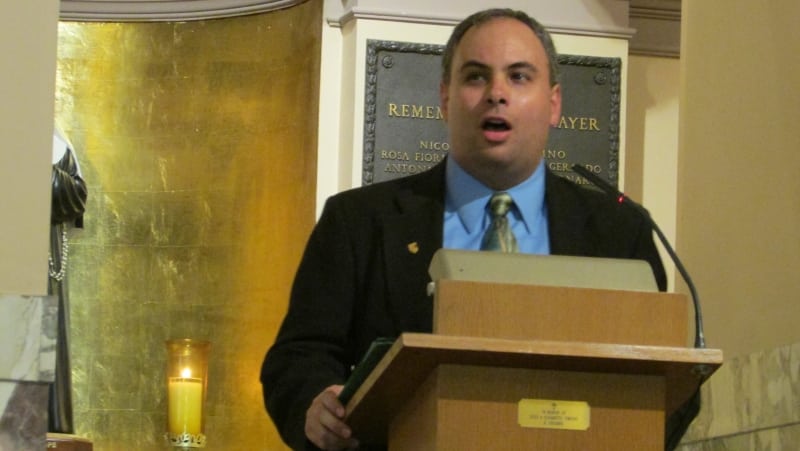Thanksgiving Day | November 28, 2019
Happy Thanksgiving!
Or, if we were to follow the insight of today’s readings, we might say instead ‘Joyful Thanksgiving’!
The first reading from Sirach reminds us that God fosters our growth from our mother’s womb. We are always growing. And one of the ways we grow is through cultivating joyful hearts.
Joy isn’t the same thing as happiness; joy holds our spirits even when happiness isn’t there. Joy is a product of thanksgiving. And that is why these readings remind us to cultivate a foundation of thanksgiving for our lives.
The first reading also invites us to see the beauty of God’s work. Not just the great beauty of creation, but each person as a work of art and one who is called to bring peace.
Beauty is a path of the spirit and can be a path to thanksgiving. Look at the beauty of nature; but also the goodness of people. Be attentive to how the people in your life show care for one another. God does wonderous things among us!
At some times in our lives, it can be hard to see, especially if we are hurting, grieving or struggling in relationship, but we are reminded in the psalm that God continues to work wonders for the people ‘from generation to generation.’ Even when we are exhausted in sadness or grief, the breadth of God’s care is never exhausted!
In the second reading, Paul gives thanks because of the community of the church at Corinth, because of God’s grace in Christ. He sees in their faith a cause for thanks and a source of joy, and even more so in God’s ever faithful presence. Paul is joyful at the beauty of God’s actions through Christ as it spills out into the life of these believers.
Finally, the Gospel of Luke presents Jesus’ action as an occasion for thanksgiving. Those lepers, because of their disease, were excluded from society and had to live in the wilderness, out of fear of disease and ritual impurity. It is almost certain that they, too, were exhausted and grieving.
Jesus told them to go and show themselves to the priests – which would be the way in which they would appeal to God for healing. The priest would offer a sacrifice so they could be healed and restored to the community.
As they go and do as Jesus said, they are healed. There was no need for the intermediary. God did a wonderous deed yet again!
Of the nine, one returns to give thanks. Perhaps the others went to the priests first and then came back. Maybe they didn’t come back. We don’t know.
All we know is one came back right away; he saw the wonderous work of God in his life and it welled up in him.
It is meaningful it was a Samaritan – someone who Jesus’ Jewish listeners might have been prejudiced against. Those who are on the margins often find more quickly the path of joy and thanks when God acts in their lives!
Just as we shouldn’t judge the Samaritan, as Jesus’ listeners might have, our task is also not judge the other nine, but, rather, find in our lives how we can be like the Samaritan who lets thanksgiving well up in us for the wonderous works of God when we see it in our lives. This Thanksgiving Day for our nation is a time to do just that.
As we also gather around the Eucharist table at our churches – it is good to remember that the word ‘eucharisto’ is a Greek verb – to give thanks. Eucharist – the reality of the real presence of the risen Christ among us – is an action of Christ present in the life of the community of the church. Another wonderous work of God, for which we give thanks, and are filled with joy.
That is a joy which I hope carries into this celebration of Thanksgiving in your homes and with those whom you celebrate today.
God give you peace!
+ + +
As Director of Certification for Ecclesial Ministry and Service at the United States Conference of Catholic Bishops (USCCB), I have the opportunity to record video reflections on the readings of the Scriptures proclaimed at daily Mass. I do so as part of larger group of colleagues at the Conference, along with lay and ordained leaders from around the country. I am grateful for the opportunity to reflect on the meaning of the readings for the life of faith today and to share them here, along with the written text of the reflections. To view these video reflections for past and upcoming celebrations of the Eucharist, visit the USCCB website.


 Request Dr. DelMonico's professional services for a liturgical, ministerial or leadership consultation, or for an academic or public presentation.
Request Dr. DelMonico's professional services for a liturgical, ministerial or leadership consultation, or for an academic or public presentation.